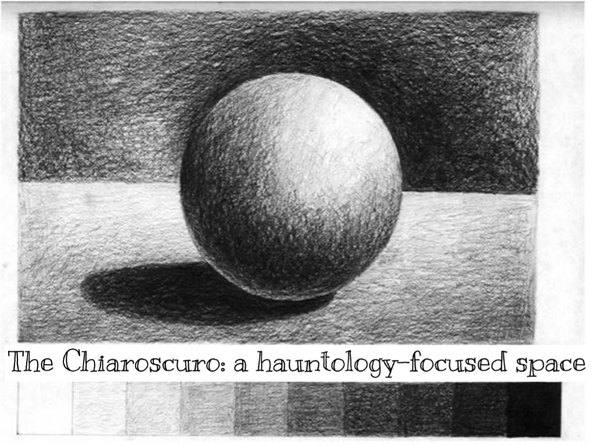A post by Catherine Nesci
Sonja Stojanovic. Mind the Ghost. Thinking Memory and the Untimely through Contemporary Fiction in French. Liverpool UP, 2023. xi + 307 pp.
This book offers fascinating insights into the return of ghosts and memorial
passages across generations in contemporary French-speaking narratives about the
Shoah, the Algerian War of Independence, the genocide of the Tutsis in Rwanda in
1994, and mass crimes during the Balkan Wars of the early 1990s. Starting with an
expected and yet fresh discussion on haunting and spectrality in Jacques Derrida’s
Specters of Marx, and continuing with a most innovative review of recent texts by
Hélène Cixous, whose writing opens and weaves lines of communication with the
disappeared, Sonja Stojanovic highlights the key notion of double suffering (double
souffrance or double douleur in Cixous), which allows empathy and listening to the
cry of others, without appropriating the latter’s suffering. Literature thus offers the
plaisir de simultaner—“the pleasure to simultane,” in the author’s translation of a
neologism from Cixous’s Défions l’augure (‘Let’s Defy the Omen’). Mind the
Ghost focuses on this mode of being together differently and a vision of literature
as “architelephony,” according to Cixous’s coining. With beautiful, attentive close
readings, Stojanovic sheds light on vectors of spectrality and untimeliness such as
names, lists, objects, boxes, sites, photographs, and stains, which form a structuring
thematic network the mesh of which she unravels in each work and from one work
to another.
If the texts by Cixous, Georges Perec, Patrick Modiano, Leïla Sebbar, and
Lydie Salvayre form a familiar corpus inhabited by multiple hauntings and
memorial wounds, the inquiry also focuses on the works of authors who have
inherited historical ruptures and hybrid identities, such as Cécile Wajsbrot (born in
1954), Jérôme Ferrari (born in 1968), Jakuta Alikavazovic (born in 1979), Kaouther
Adimi (born in 1980) and Gaël Faye (born in 1982), all writers whose characters
experience the weight of historical and collective violence: anti-Semitic oppression,
the breakdown of ethnic and religious identities in the Balkans, colonization and
the Algerian War, the genocide against the Tutsis in Rwanda. Those characters who
have disappeared, or have been erased, murdered, or tortured, re-appear through
their concrete or mental traces. As beings and lives stumble upon events that break
them, the present and the past collide; temporal palimpsests are molded and oppose
each other. All the fictions that Stojanovic admirably analyzes thus raise ethical
questions about the recovery or return of memory. The author does not avoid the
difficult or divisive questions that the texts in her corpus raise, particularly
concerning memorial dynamics, the problems of restitution and reparation, or the
narrative reactivation of traumatic scenes. Through her fine reflections, which are
always excellently theorized, on the writing of postmemory, the appearance of
ghosts, the untimely, and the traumatic, Stojanovic shows how fiction allows us to
think about historical violence, but with a concern for nuance and the choice to complicate the binaries between absence and presence, the visible and the invisible,
life and death. Her novelistic corpus thus includes characters in search of
transmission, who test the forms and paths such transmission may take, whether
they are attracted to life and the revelation of stigmatizing secrets (in Wajsbrot,
Sebbar, and Adimi) or whether they articulate a cycle of retributions and an endless
repetition of violence (in Alikavazovic and Faye).
Thanks to a well-balanced and most elegant theoretical work and an
exhaustive critical bibliography, Mind the Ghost renews the literary use of the
disparate tools of memory studies forged by clinicians or intellectuals such as
Nicolas Abraham and Maria Torok (the cryptonymy of secrets and the function of
phantoms), Aleida Assmann (modern time regimes), Marianne Hirsch (the concept
of postmemory), Alison Landsberg (the concept of prosthetic memory), and
Michael Rothberg (multidirectional memory, the implicated subject), to name just
a few scholars and key concepts. The organization of the proliferating materials is
judicious in that the well-known works of Modiano, Cixous, and Perec receive
unexpected insights through cross-readings of their texts with those of Wajsbrot,
Salvayre, and younger writers—and many more writers whose works appear in the
footnotes, such as Marguerite Duras, Annie Ernaux, Jean-Philippe Toussaint, or
Ananda Devi. For example, Stojanovic analyzes the work on the “spectral trace” in
Modiano’s texts and the transfer of haunting to readers through a study of
uncontrollable containers and ghost traces in Alikavazovic’s texts, which are
haunted by the Balkan Wars and their multiple crimes against humanity. In short,
Mind the Ghost is both a demanding and necessary work that invites us to meditate,
ultimately, not only on sites of memory, but on even more contemporary sites and
places of haunting that the French Calais or the Italian Lampedusa have become,
“ghostly sites of past-present-future hauntings […] [and] sites of an encounter with
our ethical responsibility, that is never a given, but always something to work
towards” (261), Stojanovic writes, before returning, aptly, to Cixous’s powerful
temporal and spatial echoes. Scholars interested in psychoanalysis and continental
philosophy, literature and ethics, historical and memory studies, feminist and
gender theory, migrant studies, or more generally, narrative theory and
contemporary French-speaking fiction will appreciate reading Mind the Ghost.
Studies in 20th & 21st Century Literature was the original publication platform for this article.
A Professor of Comparative Literature and French Studies at UC Santa Barbara with courtesy appointment in the Departments of Germanic & Slavic Studies and Feminist Studies, I work at the interface of gender and literary urban studies in modern and contemporary French and Western literatures.



No comments:
Post a Comment